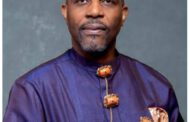On Oct. 12 the United States began deploying ground troops to Cameroon to “conduct airborne intelligence, surveillance and reconnaissance operations in the region,” according to White House spokesman Josh Earnest. He said the 300-person force will have no combat role. Instead, it will offer the United States’ “unique capabilities” to a regional force that is fighting to stamp out the Nigeria-based Boko Haram insurgency. Nigerian President Muhammadu Buhari and the Nigerian military have praised Washington’s decision.
Nigeria and its neighbors — Cameroon, Chad and Niger — launched a coordinated offensive against the group in northeastern Nigeria in January. However, the African Union–backed initiative has had mixed results. Boko Haram remains a serious threat. In addition to continued attacks in Nigeria, it has intensified violence in neighboring countries, carrying out regular bombings and massacres.
This is the second major deployment of U.S. troops to counter Boko Haram. In 2014 the U.S. sent some 80 military personnel to Nigeria after the group kidnapped 276 schoolgirls in Chibok. But the latest effort is larger and more directly involved in the conflict. It implicitly acknowledges that the regional approach is not entirely working as intended. Within the context of U.S. policy toward Nigeria, the deployment sends a clear signal that Washington prioritizes security over the messy work of understanding and resolving the political aspects of the Boko Haram conflict.
The move sidesteps some of the legal issues that might complicate a direct deployment to Nigeria, whose heavy-handed response to Boko Haram has been marred by grave and systematic human rights violations. Yet there isrecurring congressional pressure on President Barack Obama to waive the Leahy Law, which prevents the U.S. from providing security assistance to foreign military forces implicated in human rights abuses. The U.S. appears increasingly ready to make security reform in Nigeria a secondary concern rather than a prerequisite for deepening its involvement in the fight against Boko Haram. The deployment to Cameroon may foreshadow direct involvement in Nigeria.
Washington often talks of security reform as a core element of its engagement with African militaries, but the arrival of U.S. troops in Cameroon confirms the Obama administration’s willingness to compromise on politics in the name of advancing security. Cameroon’s President Paul Biya has been in office since 1982, and Chad’s President Idriss Deby, another key U.S. ally in the fight against Boko Haram, took power in a military coup in 1990.
The regionalization of the war against Boko Haram enhances both leaders’ stature as supposed guarantors of stability while minimizing Washington’s incentive to question their legitimacy. Deby and Biya are known for playing by their own rules, even in defiance of international partners. But the United States’ overreliance on them mutes U.S. criticism of their domestic policies.
Ultimately, Washington lacks a strategy that extends much beyond the goal of helping regional governments defeat Boko Haram militarily. Its policy is based on a simplistic assumption that the insurgency is mostly a result of poverty. As a result, the United States’ postconflict reconstruction agenda hinges on investing more in socioeconomic development in Nigeria’s northeast.
This approach ignores several questions. What happens to Boko Haram fighters who are not killed? Is there any possibility of dialogue with the group’s various factions? What steps are necessary to ensure that Boko Haram does not spring back after it is defeated? Who must be held accountable nationally and locally?
The deployment of U.S. troops to Cameroon does not necessarily prevent Buhari or his peers from thinking through these questions. Buhari has already expressed willingness to talk to Boko Haram. Yet Washington’s aversion to talking with those it deems terrorists — and its long-standing silence on the merits of dialogue and negotiations — creates a climate that prioritizes militarizing the conflict over sorting through its political complexities.
It appears unlikely that the mission in Cameroon will end in disaster. But U.S. policymakers might take a hard look at the uninspiring results of Washington’s mission to capture Joseph Kony, the leader of the Uganda-born, cultlike Lord’s Resistance Army, which has troubled central Africa for nearly three decades. Since 2011, U.S. troops have pursued Kony without success and have acquired problematic allies such as the Seleka, a rebel militia in the Central African Republic.
The anti-Kony campaign has deepened Washington’s association with Ugandan President Yoweri Museveni, who took office in 1986 and whose latest re-election campaign involves systematic police brutality against opponents of his regime. The mission in Cameroon, as with the effort to catch Kony, could yield little except painful questions about Washington’s counterproductive compromises in Africa and its facile approaches to the continent’s conflicts.
U.S. policies aimed at neutralizing armed groups’ military capabilities often breed more violence. In Yemen, for example, the wave of targeted drone strikes has fed rather than decimated Al-Qaeda’s affiliate in the Arabian Peninsula. In Somalia, U.S. drone strikes and U.S.-backed East African militaries have vastly shrunk the territory controlled by Al-Qaeda-linked Al-Shabab, but the threat lingers, with grim consequences for neighboring countries, particularly Kenya.
Washington’s “unique capabilities” are helpful for assassinating insurgents and preventing them from holding territory but are less useful for generating what must ultimately be political solutions to conflicts.













